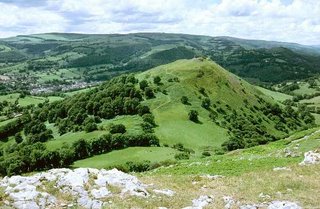 This will be my last post for a while. Mrs Wenlock is driving me into the mountain fastnesses of Wales today, and leaving me in a remote cottage with no access to telephone, television or the interweb thingy so that I can have a week of solitude in which to write a good chunk of my new novel, an as yet untitled sequel to Lord Alexander's Cipher; or, the Bridekirk Behemoth. As I have said in a previous post, this will have an Arthurian theme of sorts, although it takes place in 1814.
This will be my last post for a while. Mrs Wenlock is driving me into the mountain fastnesses of Wales today, and leaving me in a remote cottage with no access to telephone, television or the interweb thingy so that I can have a week of solitude in which to write a good chunk of my new novel, an as yet untitled sequel to Lord Alexander's Cipher; or, the Bridekirk Behemoth. As I have said in a previous post, this will have an Arthurian theme of sorts, although it takes place in 1814.My cottage was chosen for its remoteness - it is a good few miles from the nearest pub, for instance - but it turns out that the nearest town, Llangollen, claims Arthurian connections for itself. Indeed the hill in the picture below is called Craig Arthur,
 and nearby is Croes Gwenhwyfar, said to be the only place in Britain named after Guinevere. I should add that the earliest record of the name is from 1690, and was recorded by Edward Lhuyd, the inventor of Celticism, so it probably does not stand much scrutiny.
and nearby is Croes Gwenhwyfar, said to be the only place in Britain named after Guinevere. I should add that the earliest record of the name is from 1690, and was recorded by Edward Lhuyd, the inventor of Celticism, so it probably does not stand much scrutiny.Sarah was in Llangollen quite recently, and one of the comments on her post reminds me that it is not far from where the action of some of Susan Cooper's The Dark is Rising sequence takes place. I have nearly finished reading the last of the series to the Wenlock heir at bedtime.
Look for me to post again next Sunday.










